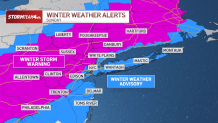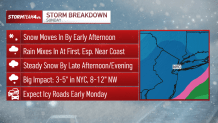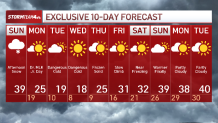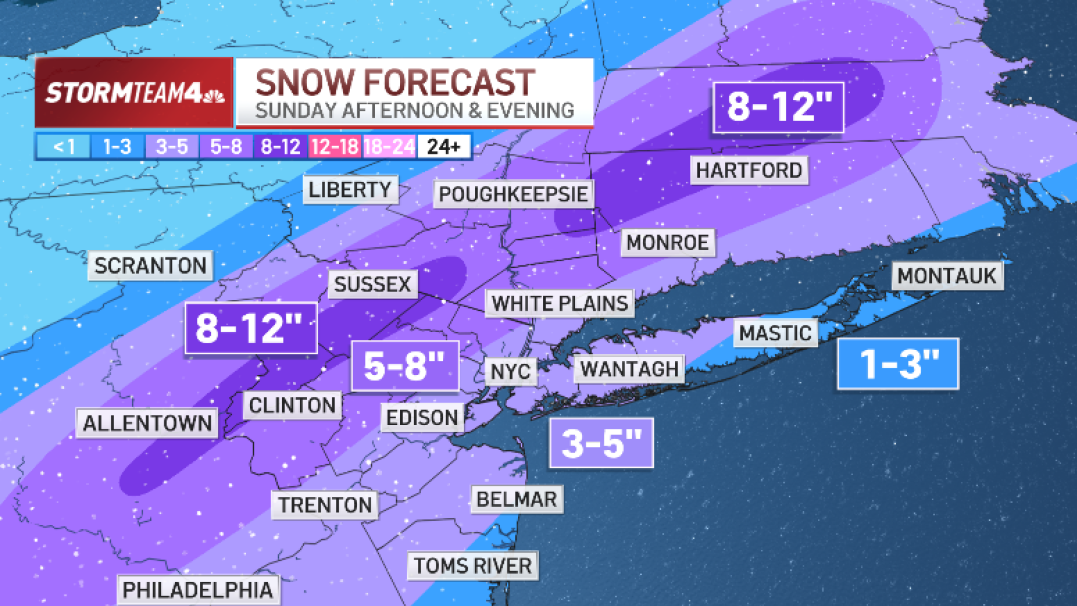Much of the tri-state is scheduled to be under a winter storm warning for a snowstorm Sunday that could bring the most accumulating snow to the area in nearly three years.
Inland parts of New Jersey, New York and Connecticut will be under winter storm warnings from 1 p.m. Sunday until 4 a.m. Monday. New York City, Long Island and coastal parts of the tri-state will fall under a winter weather advisory until 4 a.m. Monday.
In New Jersey, Gov. Phil Murphy declared a state of emergency on Saturday.
“As always, I urge all New Jerseyans to use caution, follow all safety protocols, and remain off the roads unless absolutely necessary,” Murphy said in a statement.

Latest Forecast From Storm Team 4
The snow is expected to start falling lightly in the immediate New York City area around 11 a.m. but will really move in by early afternoon. We will see rain mixing in with the snow at first, especially near the coast.
With the mild temperatures in the air, we will see some melting and low impacts through 4 p.m. Starting at 4 p.m., we’ll see temperatures drop to freezing and that’s when travel will become most dangerous.
The worst weather will happen between 5 p.m. and 9 p.m. with some heavy snow bands dropping an inch per hour, leading to snow covered roads and poor visibility.
The snow tapers to light snow and flurries between 9 p.m. and midnight, and then temperatures come crashing down.

We expect a general 3 to 5 inches in the New York City metro area. Further inland parts of northern New Jersey, upper Hudson Valley and into Connecticut, 5 to 8 inches are likely. And some higher elevation areas of northwest New Jersey, the hills of Connecticut and northern part of the Hudson Valley could get as much as a foot of snow.
If banding becomes very intense, we could see totals on the upper end of the ranges, with a few spots even overperforming. But if the colder air takes longer to move in, we could see totals on the lower end of the ranges, especially near the coast.
The MTA said it is monitoring the weather conditions but, as of Sunday morning, has made no changes to the planned weekend and holiday scheduled service.

The snow that falls on Sunday is not melting any time soon. Temperatures will fall dramatically behind the storm leading to icy roads and slick travel on Monday.
Temperatures next week plummet into the teens and 20s for several days; morning lows fall to the single digits in the city.
We’ll experience the coldest blast of air of the season, with Tuesday, Wednesday and Thursday being the worst. Morning wind chills on those days could be sub-zero, making for downright dangerous conditions.
The end of January is climatologically the coldest time of year for Central Park. And this year is certainly delivering in that regard.





